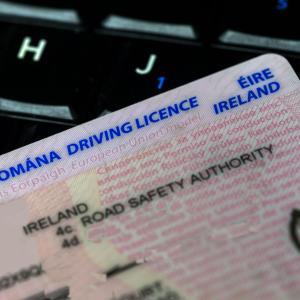News & Articles

Holiday Reminder: Check that your Passport and Travel Policy are valid!
Summer holidays are just around the corner, and many of us across Ireland are getting ready to jet off for some sunshine abroad. However, before you start booking flights and packing your bags, there are a few important things to check: your passport and travel insurance. Now’s a great time for Irish citizens to take a […]

What You Need To Know About Property Insurance By Compare Insurance Ireland
Let’s be honest, home insurance isn’t exactly thrilling. For most of us, it’s just another thing on the to do list. But when life throws a curveball, the right insurance can make a huge difference. Whether you’re moving into your first home in Dublin or you’ve been settled in Galway for years, making sure […]

European Health Insurance Card (EHIC) Ireland
The European Health Insurance Card (EHIC) helps you get healthcare for free or at a lower cost when you’re in another EU country. You can use it: If you are planning to go on holiday. Staying abroad for less than 3 months. Studying in another EU country (you’re covered for the full academic year). How […]

Rising Rebuild Costs in Ireland: Time to Check Your Property Insurance
If you’re a homeowner or landlord, now’s a great time to double check that your property is adequately insured. Rebuilding costs are on the rise, which means your current level of cover might not be enough. According to the most recent House Rebuilding Guide from the Society of Chartered Surveyors Ireland (SCSI), the average cost […]

Ireland’s New Driver Number Rules For 2025
Starting from 31st March 2025, all drivers in Ireland will need to provide their driver number when buying or renewing their motor insurance. This change is part of a new government initiative aimed at making our roads safer and reducing uninsured driving. So, what’s changing? When it’s time to buy or renew your car insurance, […]

Central Bank Of Ireland Consumer Protection Code 2025
The Central Bank of Ireland has taken the final step in reviewing the Consumer Protection Code by publishing its Feedback Statement. This follows last year’s public consultation on proposed changes to the Code, which will officially be updated from 24 March 2026. Consumer Protection Regulations The Central Bank of Ireland has made several adjustments […]

Safeguard Your Home In Preparation For A Storm in Ireland
The Irish weather can be very unpredictable. When a storm is on the way, your home should be a safe haven, but strong winds and heavy rain can cause serious damage if you’re not prepared. Here are some steps to help keep your home safe when bad weather strikes. Stay Updated on Weather Alerts Keep […]

Ireland’s New Speed Limits For 2025
Big changes are coming to Ireland’s roads in 2025 as new speed limits are introduced to make travel safer for everyone. These updates aim to protect all road users, especially in rural and built-up areas. Which speed limits in Ireland are changing? Rural Local Roads – The speed limit on many rural local roads will […]

Telematics Black Box Insurance
In car insurance, a “black box” is a small telematics device you install to track and record your driving. This technology plays a key role in telematics-based insurance policies. These policies use your driving habits to determine your premium, moving beyond traditional factors like age, location, or the type of car you drive. Here’s how […]

Tips to Pass Your Driving Test in Ireland
You’ve completed your theory test, mastered your driving lessons, studied the Rules of the Road, and practised until you feel confident. Even so, feeling a bit nervous is normal. Don’t worry; we’re here to help you prepare for the big day. While we can’t completely eliminate your nerves, proper preparation can ease them significantly. Follow […]
